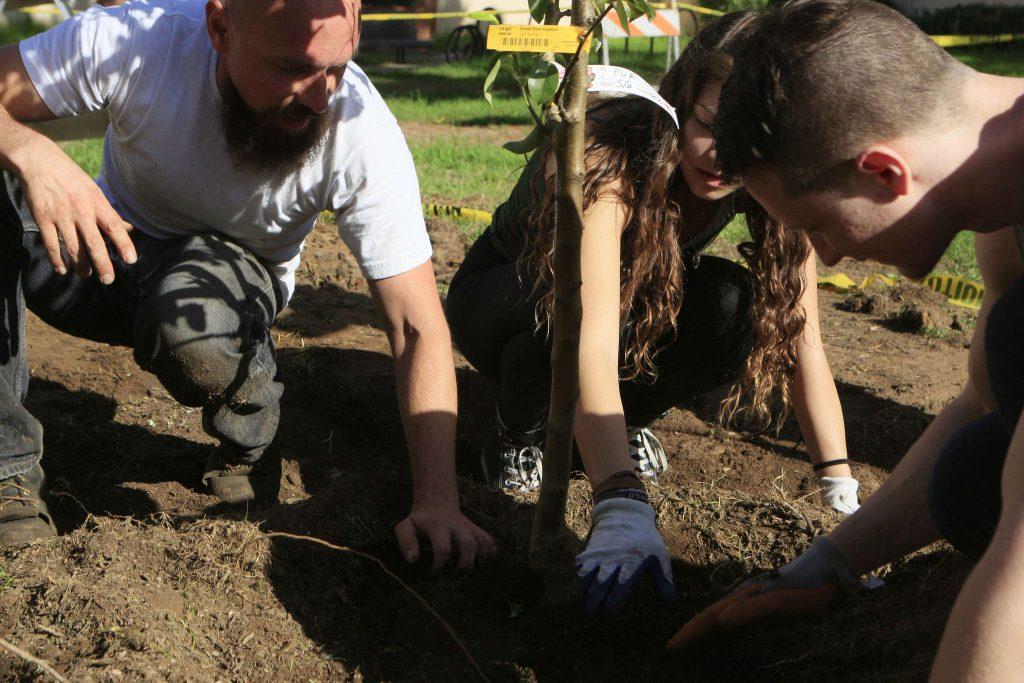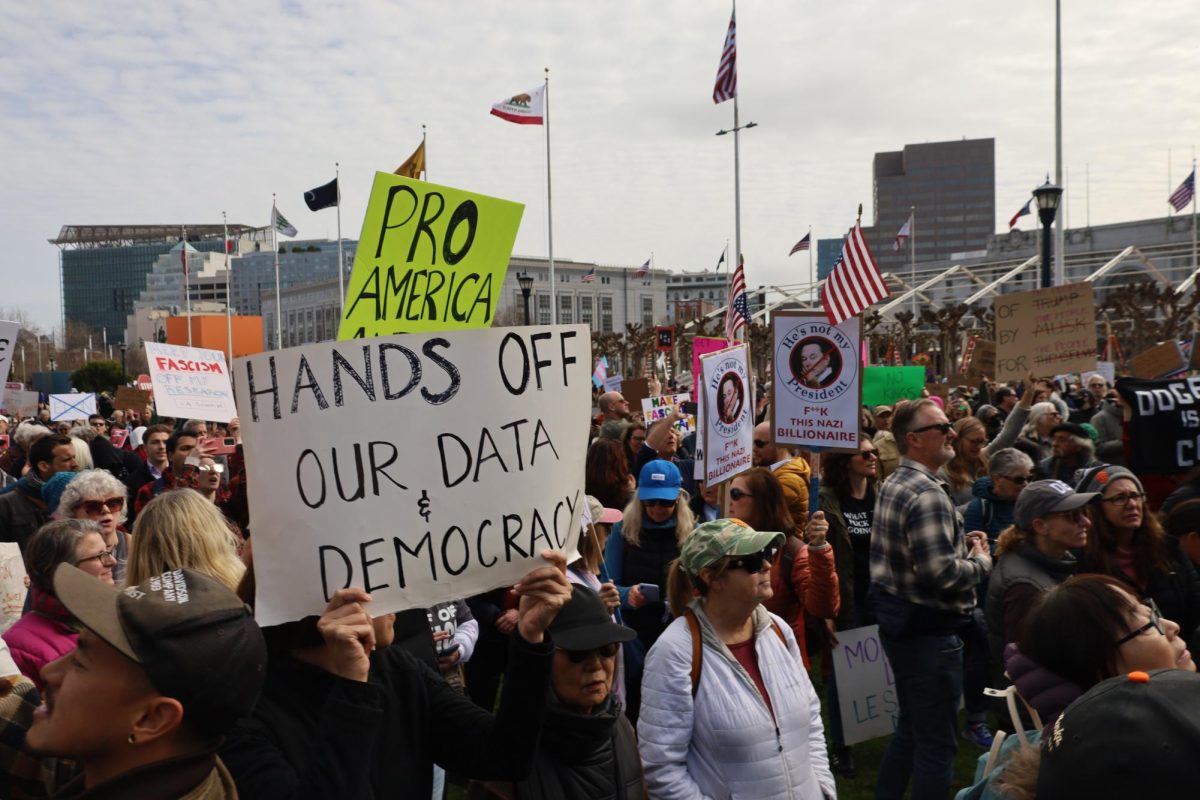SF State students and volunteers from around the Bay Area came together last week to celebrate the fourth annual Campus Sustainability Festival with environmentally friendly activities like planting fruit orchards and repurposing discarded jeans.
Various departments, several student clubs and a few outside nonprofit groups collaborated to put together eight events on campus — many of which were run on almost no budget — where students were encouraged to become involved in their local environment and engage in sustainable practices.
“We do our best to do a big event without having to pay a lot and I think that’s also an example of what you can do to be more sustainable,” said Miguel Guerrero, student sustainability coordinator.
Friends of the Urban Forest, a San Francisco-based nonprofit group, provided proper instruction for volunteers to plant more than 60 fruit trees in University Park North.
“It really has been a collective effort,” Guerrero said. “We reached out to different organizations and asked them to come in today. We’re just filling the gaps where we can.”
In just a few years, students in UPN will have access to two types of plums, apples, cherries, pears and Asian pears in addition to three different types of apples, according to Doug Wildman, program director for Friends of the Urban Forest.
“It’s an exciting thought to think that in walking by them, kids are free to pick them,” Wildman said.
In the quad, groups invited students to engage in sustainable practices, but the recycled Levi Strauss & Co. jean sale, a partnership between the apparel design and merchandising program and Goodwill, drove foot traffic.
“I just like taking part in these types of events because they try to get the community together,” sophomore Holiday Hagan said. “Plus, it helps the environment. I think where real environmental change happens is here — getting involved in nature.”
Prior to reselling the jeans to students at discounted prices, Goodwill took the donated denim to wholesale textile vendors by the half ton, making only 22 cents per pound, according to Tim Murray, the director of Brand, Marketing and Advertising at San Francisco Goodwill. Before partnering with Goodwill, Levi’s just took the material to the landfill rather than reusing it.
“For us, it’s not just about our bottom line,” said Maureen Sedonaen, the president and CEO of San Francisco Goodwill. “It’s really about our triple bottom line, which is people, planet and prosperity.”
Connie Ulasewicz, a professor who teaches in the apparel design and merchandising program, coordinated with Goodwill to make the sale possible. She said the money made from the repairs will go to a scholarship for the student who wins a denim design competition, judged by representatives from the department, Levi’s and Goodwill.
“Our hope is that students get inspired and leave with a motivation to change their habits and understand that everyday actions can lead to being more sustainable,” Guerrero said. “I would say that if we could reach just a few dozens students that we’ve been successful, but I know that we’ll do more than that.”







